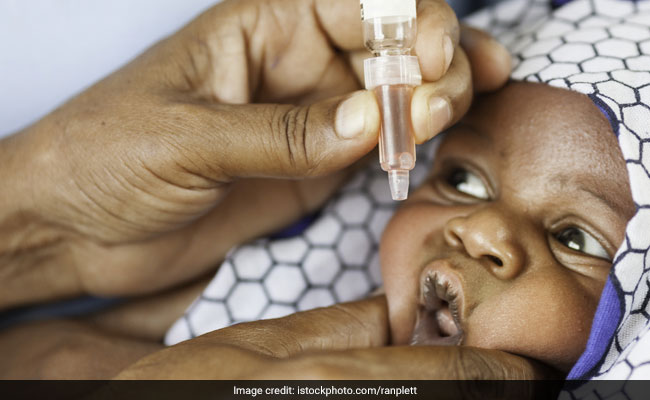World Polio Day 2017: Here's an insight to India's journey towards the complete eradication of polio in the country.

World Polio Day 2017: India's journey towards complete eradication of polio
HIGHLIGHTS
- Most of the polio cases were reported from Bihar and Uttar Pradesh
- 2009, India witnessed maximum number of polio cases in the world
- In 2014, India was declared a polio-free country by WHO
What is polio?
October 24 is observed as World Polio Day, aiming to spread awareness about Poliomyelitis, an infectious disease. The disease is known to immobilise an individual partially or wholly.
It's history in India
Back in 2002, around 1,556 polio cases were reported in India, thus causing an alarm amongst people. Most of these cases were reported from Bihar and Uttar Pradesh.
While the vaccine for polio was available in most places where polio cases were reported, the reluctance of rural people to walk up to polio vaccination camps made it all the more difficult for the authorities to stop the epidemic of this disease. In 2009, India witnessed more polio cases than any other country in the world.
Until early 1990s India was hyperendemic for polio, with an average of 500 to 1000 children getting paralysed daily. During the 1970s to 1990s, 200,000 to 400,000 cases were reported annually. During the years since 2004, annual pulse polio vaccination campaigns were conducted 10 times each year, virtually every child was tracked and vaccinated.
In an article published last year, the WHO has said there is “no threat” to the polio-free status of all South East Asian region countries, including India. It said that no child has been afflicted by wild poliovirus since the last case was reported from West Bengal in January, 2011.
Dr. Harsh Vardhan as the State Minister of Health in 1994, was the pioneer of Pulse Polio Programme which involved the mass immunisation of 1 million children up to the age of three in Delhi. The project was replicated in other countries as well. In 1995, this programme was launched nationwide leading to 88 million children being immunised. On March 28, 2014, India was declared polio-free by the WHO as there had been no reported cases for three years.
Bollywood's social responsibility
In no time, Bollywood superstar Amitabh Bachchan came on board as the brand ambassador for Polio Eradication Campaign in 2002. One can say that Bollywood played its true responsibility when it comes to spreading awareness about the polio vaccine, with the likes of Aishwarya Rai Bachchan and many others sportingly joining the campaign. 'Do boond zindagi ke' became the anthem for the campaign and people slowly became more convinced about the polio vaccine.
Commitment at central, state and local levels
The vaccination was slowly made available in people's homes with volunteers visiting every home to make sure all children were duly vaccinated. A system to track newborn babies helped health workers reach them with the vaccine.
Political commitment at the central, state and local levels, along with a national campaign, helped in effectively spreading awareness and addressing the cause which could have affected a large number of the country's population.
Contribution from overseas
A partnership between the Indian government, the World Health Organisation, UNICEF Rotary International and the Bill and Melinda Gates Foundation raised more than $2 billion. An army of two million vaccinators was deployed to reach more than 170 million children in polio immunisation campaigns each year.
Additionally, new technological innovations like genetic sequencing helped in quick identification of where an outbreak of the virus originated, enabling the government to stop it from spreading.
After years of dedication and hard work, the country was declared polio-free on March 27, 2014, by the WHO.
DoctorNDTV is the one stop site for all your health needs providing the most credible health information, health news and tips with expert advice on healthy living, diet plans, informative videos etc. You can get the most relevant and accurate info you need about health problems like diabetes, cancer, pregnancy, HIV and AIDS, weight loss and many other lifestyle diseases. We have a panel of over 350 experts who help us develop content by giving their valuable inputs and bringing to us the latest in the world of healthcare.














